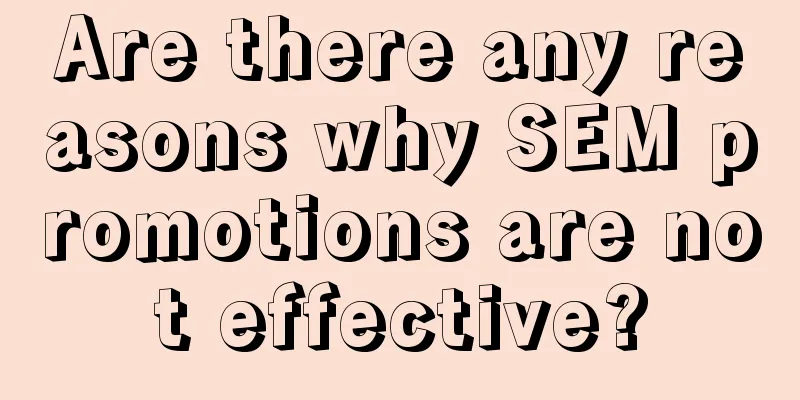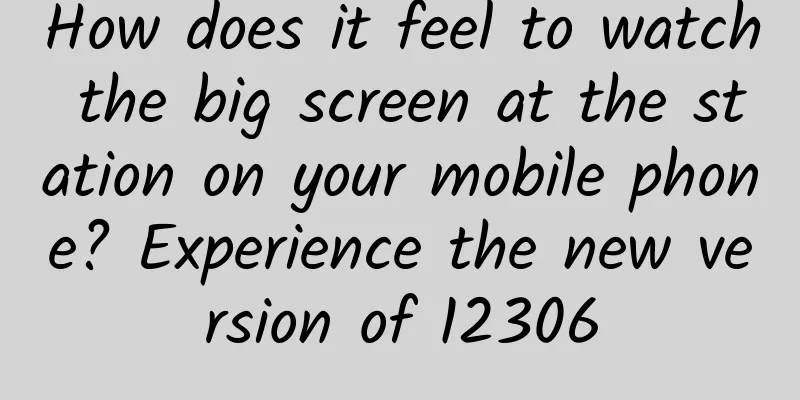How to spend the middle age of programmers

|
I have read a lot of articles about the midlife crisis recently, and I always feel that I am just a spectator, and the midlife crisis seems to be a while away from me. However, I suddenly wonder if I have entered middle age? Have I ever thought about this question seriously? I am already in my early thirties, my face is getting wider, I don’t pay attention to my image and fitness, and my life has been filled up since I had a child. All my time is on the road, at work, taking care of the baby, and sleeping. Everything seems normal, and I keep going at this rhythm. I always feel like something is missing. Yes, do I still have a goal? Looking back, my goal when I was in school was to get into No. 1 Middle School, get into a good university, and leave the countryside; when I graduated and just started looking for a job, my goal was to find a good job and solve the household registration problem; one or two years after graduation, my goal was to buy a house, get married, and have children; what about now, four or five years after graduation? It seems that I have to be busy every day according to a specific pattern, and I don’t even have time to think! You may say that the commute to work is too far and you get home too late. Every time you arrange a plan for study and reading, you finally free up some time but give up for various reasons. One of the reasons for not having time is that we spend too much time entertaining ourselves. Our need for self-entertainment stems from the need to fully obtain information in fragmented time. Perhaps the world is changing too fast, or perhaps smartphones are too convenient. As soon as we open our eyes in the morning or get on the subway, we will check the news, Moments, Weibo, finance... to obtain information. When we encounter something that interests us, we will be attracted to it unconsciously: NBA, World Cup, entertainment gossip, the escalation of the Sino-US trade war, the ups and downs of the stock market... Time is wasted little by little. When we are rushing by with our heads down, have we ever thought about where we should go? When we are scrolling through our social media again and again, shouldn’t we give ourselves some time to think? The second reason for not having time is inefficient efforts. I often feel that I leave home early and come back late every day, work hard, and my schedule is full. When I get off work, I want to leave all work-related things far away, lie quietly in bed for a while, check my phone, and envy others who have gone to Europe and the Maldives, who have switched to high-paying jobs, who have raised funds and become general managers... In fact, life is fair. Only hard work will be rewarded. Inefficient efforts can only lead to mediocrity and gradually lose competitiveness. You may say that I am one of the hardest workers around me, and many people are even less efficient. I think this is a case of the pot calling the kettle black, because if you think this way, you will never become the 20% you envy: they always feel that they don’t have enough time, they are always studying, rushing to finish their manuscripts, making good investments, and thinking seriously about their middle age. If you want to become one of them, you must improve your working methods, cherish time, improve efficiency, and save more time for thinking.
Goals must be quantifiable. I still remember that when I first started working, I told my girlfriend that I wanted to become a technical expert. However, the concept of technical expert is very vague now. What does it mean to be an expert? Should we go with the flow and grow from senior engineer to senior engineer to technical expert according to the growth of work experience? Or should we become an expert like Wu Jun, a Silicon Valley scientist who is talented, has many books and is a famous investor? Perhaps there is a huge gap between the two. For this problem, the goal of "expert" has not been quantified. In fact, it is about goal decomposition and goal management. When it comes to this topic, it is easy to think that at the beginning of each year, we will set a number of goals for ourselves, including how much professional knowledge to gain, how much weight to lose, how many books to read, and how many miles to walk. But after a few days, we are still happy when we should be happy, and check our phones when we should be happy, and these goals have long been thrown out of the window. In fact, we have not set a time point for checking, nor have we set a target value to be achieved at each time point, and we have not formed effective incentives. There is only a big but empty goal, such as "I will exercise this year and lose 10 pounds", but I don't know when I should lose a few pounds. Every time I should exercise, I will postpone it, so I can find an excuse to do it later, and forget it over time. In his letter from Silicon Valley, Professor Wu Jun used his own example to talk about a goal management method. At the beginning of the year, he set a dozen specific goals in different aspects, such as work, writing books, and finance, and then broke down each specific goal into 3-5 key goals, as well as several small goals and check time points. Every time a key point is reached, he sets an incentive for himself, such as going on vacation or buying himself a gift. By checking and reviewing your work every two weeks, after a year, you will be able to clearly know how far you are from these specific goals, what you have accomplished, what you have not accomplished, and how to improve. This method is worth learning from.
In fact, it is important to know what to do and when to do it, and it is even more important to be able to stick to it. Look at the many people around you who can become directors or even general managers at a young age. Why do they still race against time and work harder even though they have been very successful for a long time? In fact, they have several other characteristics: fear of the unknown, self-discipline, and high efficiency. The fear of not getting what you want is actually a dissatisfaction with the status quo. There is a theory of class solidification in this society, which means that once you reach a certain class, it is difficult to break through. It emphasizes that the intensification of the 28 phenomenon makes the strong stronger, and the resources and opportunities of the lower class are restricted, making it difficult for them to have room to play. This makes sense. From the perspective of resource allocation, it is true that those who get rich first occupy most of the resources, providing themselves and their descendants with more resources and vision, making it easier for them to succeed. For those who have not achieved financial freedom and need to work hard every day to make a living, if they are satisfied with the little resources left in this society, it is actually quite dangerous and they will easily hit the ceiling and encounter a crisis. In fact, it is easy to work hard from the bottom of a class, because there are many goals around you that you can refer to, such as the college entrance examination, such as finding a job, and others can do well, which is a very effective motivation; on the contrary, it is more difficult to break through the edge of one class to another, because you may not find a familiar person as a comparison and motivation object, or you may be satisfied with being better than the people around you. Realizing this, if you want to change, you cannot be satisfied with the status quo. You should not be disturbed by those around you. You should make more efforts to utilize and create resources. You should use someone familiar who is much better than you as an object of comparison and motivation, learn his qualities, make time your friend, and there will definitely be a breakthrough.
Self-discipline and efficiency are two other important qualities. When people reach middle age, there are too many trivialities in life. Even if you make a great plan and listen to successful experiences, it will be useless if you can't stick to it. Even if you stick to it, it will not work if the progress is too slow. The world is developing too fast, and there is more and more information to receive. How to obtain more valuable information in a limited time is very important. On the other hand, at work, high efficiency requires self-discipline, and you must work with the mindset of improving your life value. For technical personnel, I think Lu Qi's five suggestions for engineers can illustrate these two aspects:
I think this is a perfect summary of the pursuit of technology. For an engineer, it has guiding significance both in work and life. It requires us to pursue excellence, self-discipline and efficiency. In addition, if you set clear goals for your work every day and try to do less things that are not related to the goals when you are at work, you can also significantly improve your efficiency. To sum up, I think engineers in their middle age should spend more time thinking, not be satisfied with the status quo, set goals that can be measured and adhered to, learn from people who are better than themselves, continue to pursue excellence, improve their efficiency to achieve their goals, and become the person they want to be. |
<<: From the confusion of technology management, how to solve the mid-life crisis of IT people
>>: Microsoft Office 2016 creates mobile office solutions for large and medium-sized enterprises!
Recommend
iPadOS system released: desktop-level experience says goodbye to large iPhone
In addition to the regular upgrades of the four m...
The latest regulations for the 2022 International Women's Day holiday: Will there be a holiday on March 8?
As International Women's Day approaches, what...
Common traffic interception tactics for Internet marketing and promotion!
01Good content is the essence of traffic generati...
The express delivery arrives but I don’t know how to sign for it, what should I do?
[51CTO.com original article] Are you still rushin...
4 strategies for Xiaohongshu brand promotion!
With the end of the Spring Festival, the topic of...
Build hybrid mobile apps with Apache Cordova
[[127393]] 【51CTO translation】 You have finished ...
What are the functions of Foshan Psychological Counseling WeChat Mini Program? How to make WeChat psychological test mini program?
Nowadays, with the continuous improvement of peop...
A set of universal title templates to teach you how to increase article opening rates!
Whether you are writing professional and informat...
Even the mobile version of Chrome can't do it! Kiwi browser experience
[[439911]] Which browser do you use on your phone...
This little black box can crack the passcode of almost any iPhone
It doesn't matter whether you add a fingerpri...
How much does it cost to make an errand running app?
Where there is demand, there is a market. During ...
Watch Joy of Life online for free, watch Joy of Life online for free full version and high definition!
When Fan Xian was fifteen years old, his father F...
NetEase, don’t drift away
NetEase published a statement on its portal websi...
Get these six points right, attracting seed users won’t be a problem (Part 1)
Probably, the first and most important operationa...
Community operation: How to ensure the continued activity of the community?
Currently, almost all communities have the follow...









![October Marketing Node Reminder [Dry Goods Collection]](/upload/images/67cc0daa374fc.webp)